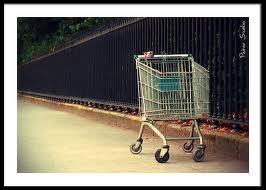Stewardship

The conversation drifted toward organizations, with most of the questioners wondering how to shift their organization in this direction, and I noticed myself feeling increasingly uncomfortable.
Peter described two organizations that seem dedicated to Stewardship, but these examples seemed to almost prove the point that such places are extremely rare. The paternal organization seems clearly dominant, and uninterested in these Utopian-seeming notions.By the end of the webcast I felt myself sliding into an emotional sinkhole. This morning, I finally figured out what was troubling me. I believe that attributing Stewardship to an organization qualifies as a mistaken attribution, because Stewardship can only belong to individuals. And, I believe it doesn’t matter what an organization’s underlying organizing principle might be. Stewardship might thrive anywhere. It requires no permission, for permission would render Stewardship into just another form of paternalism. Stewardship has to be the sole and personal responsibility of individuals like you and me.
Thinking about how I exhibit Stewardship popped the funky trance. I am nearly incapable of passing an abandoned shopping cart. I consider it my responsibility to return to its proper place every one I find. I feel offended when I see one left to block traffic or rudely shoved up onto a median strip. Clearly, whomever abandoned it there lacked a sense of Stewardship.
The Muse makes the distinction between what she calls Renter and Owner mindset. The Renter mindset knows it’s not getting any appreciation in the value of any real estate, and easily justifies letting the yard go to seed on their watch. The Owner mindset embodies the practice of Stewardship by assuming full responsibility for the ongoing well-being of whatever they engage with, whether they actually own the property or not.
This house we’re presently renting gets cared for as if it were my own. The neighbors can’t quite understand why I would dig out that stump and improve the quality of the soil at my own expense, and why I mow to more exacting standards than the owners on the block. Stewardship explains it. I feel a deep need to care for whatever’s in my charge.
Trying to create an organization that values Stewardship seems to discount Stewardship, and withholding Stewardship until it’s sanctioned and safe might sour any possibility of experiencing it. Stewardship isn’t difficult once the Owner mindset kicks in. The challenge might be to shift my own mindset first. I always have opportunities to care about what follows after me, and I can even see them when my head’s screwed on Stewardship straight.
I’m learning that my sense that I should wait for permission prevents me from practicing wise Stewardship. Stewardship thrived even under Nazi occupation, where it was deadly dangerous to care about preserving civil culture. I think we might be hard-wired to prefer it, though frequently short-circuited by the distracting demands of modern life.
Don’t ask when your company will wake up, wake up yourself. Own yer own shit, Man. Stand up even when nobody’s counting because you’re counting on you. And so are we all.
Here’s a link to a YouTube recording of this
Webcast.©2013 by David A. Schmaltz - all rights reserved


